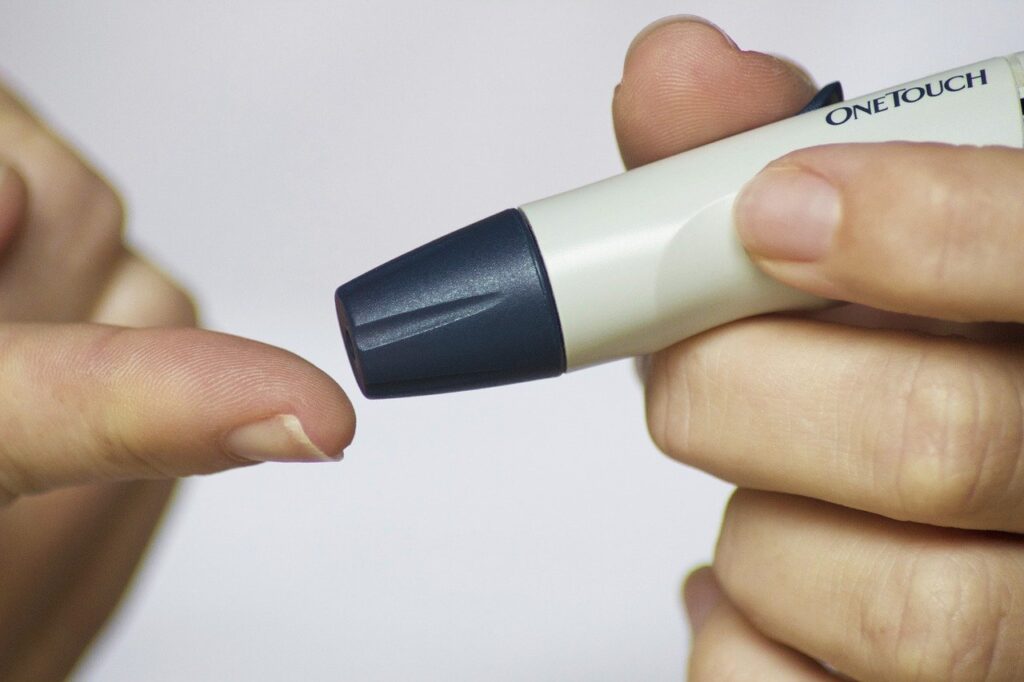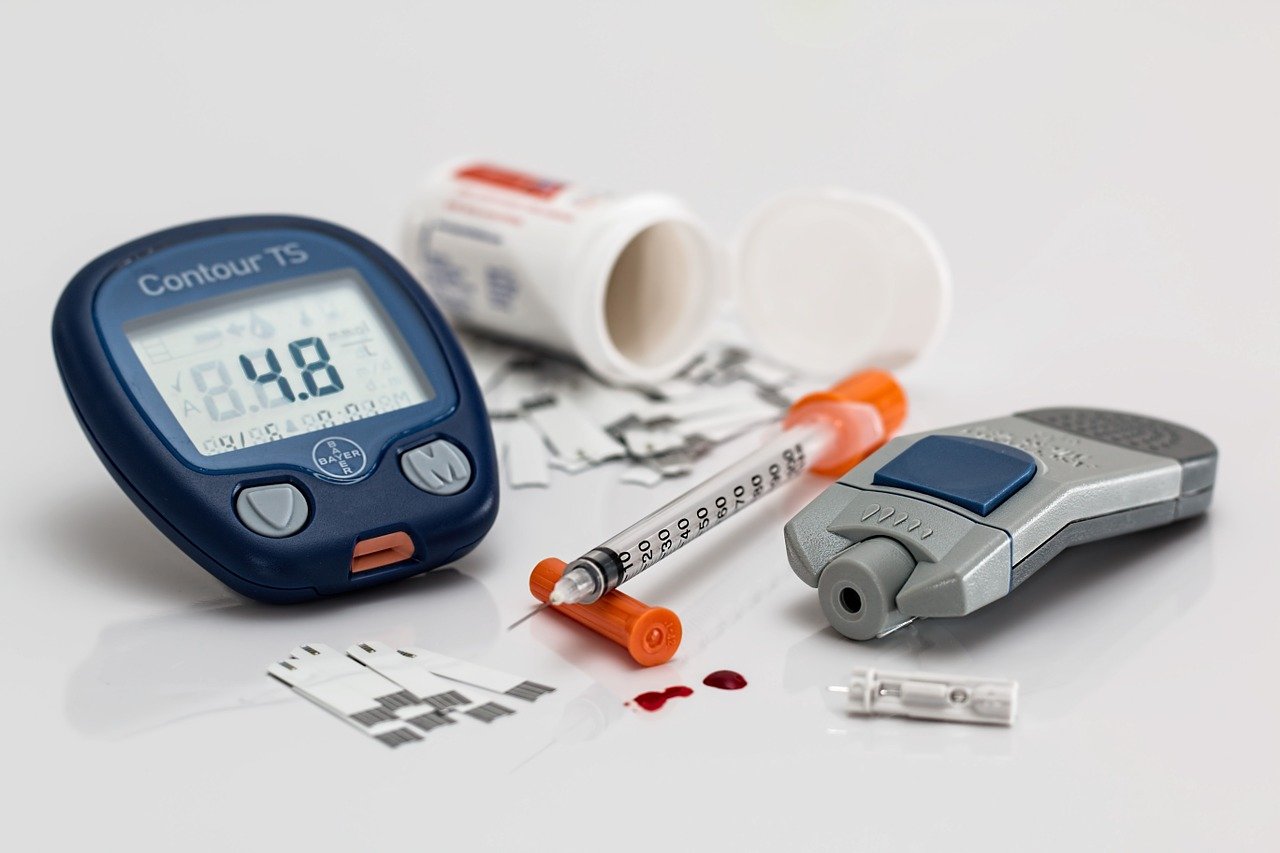With fasting being a hot topic here on the blog right now I have been getting wrapped up in questions and have, in turn, investigated different angles of intermittent fasting (IF). One popular question is if you can do this with diabetes. There is not a large amount of studies or research done on IF and how people with diabetes respond to it, but there is some thankfully. Can fasting and diabetes be a possible benefit to health? This is another quick post on what I have read and looked into to be valuable and also accurate on the matter. I understand my audience, though I may be a nerd and want to post all the science and graphs, spends about 4 minutes on my article pages. I want to make these more catered to you and keep it simple and effective.
Diabetes/Intermittent Fasting
Type 1 diabetes, also known as insulin dependent diabetes, is an autoimmune disease. This type develops in childhood or the developing years of life. With type 1, there is damage to the pancreas from your own body seeing it as foreign and attacking it (3). Type 2 is found in people who are obese. This type develops due to the pancreas excreting only some insulin, or when there is an issue with your body’s cell’s ability to take that insulin up. Type 2 diabetes is often less extreme than type 1. There is a third type called gestational diabetes as well. This has to do with insulin resistance during pregnancy but can lead to type 2 later in life (3).
Intermittent fasting is a time restricting eating program. Basically, you just shorten the time of day you are taking in food. The common window is 8 hours. This leaves 16 hours of the day for fat burning etc. Read more on IF HERE if interested.

Should You Try It?
This question comes down to the specific person and their type of diabetes mellitus. As a rule, type 1 diabetics should really avoid this unless they have supervision and the green light from their personal doctor. There have been cases in the past where type 1 people will jump on the trend of IF or Keto and get themselves in a ketoacidosis situation. This is when ketones from the liver are in the blood in an amount that is acidic and can cause some issues for people. According to, Alejandra Fernández-Cardona, “A 58-year-old woman with T1DM and no prior episodes of DKA since her diagnosis 16 years ago was admitted to the emergency room with severe metabolic acidosis, ketosis, dehydration, and back pain after 9 days of practicing a ketogenic, intermittent fasting diet on the advice of a friend.” This is a perfect example of how it can be dangerous for type 1 diabetics especially. In this woman’s case she should have approached a professional about her diet plan and moved forward with his/her advice.
Things get interesting when we talk about IF and type 2. This is where you will be able to apply fasting to better your diabetes. I want to start of with an extremely small study group that was put on an IF program as type 2 diabetics. In an article posted on WebMD, and reviewed by Michael Dansinger, this was stated:
“One very small study included three men who had had type 2 diabetes for 10-25 years. With medical supervision, the men fasted every other day or 3 days a week. Within a month, all of the men were able to stop taking insulin. And in less than a year, they were able to cut down on or stop other diabetes medications. In another small study, 10 obese men with type 2 diabetes followed a time-restricted eating plan. They improved their fasting glucose and lost weight over 6 weeks.”
“Can You Fast If You Have Diabetes?” WebMD, WebMD, www.webmd.com/diabetes/fasting-diabetes.
Pretty impressive results. This was just one small study I ran into but there were a few more I was unable to get access to. This was a day on day off fast. Intermittent fasting would be less intense when it comes to the possibility of going hypoglycemic (low blood sugar count). The developed type 2 diabetes is due to the pancreas being stress and or the cells having issue with uptake. As we concurred in Intermittent Fasting: The Dietary Medication, IF can give these cells, and organs a break. This allows the body to become more insulin sensitive, reducing the need for insulin and other medication. The pancreas also gets a break and then begins to properly work. On top of that, the body fat loss contributes to the improvement of type 2 altogether. The only issue that arises with type 2 diabetes and fasting would be becoming hypo or hyperglycemic (high blood sugar count). This can happen if your diet is not well planned. Indulging after a fast on high carb food could result in hyperglycemia. Opposite to that, not eating right in the time before the fast begins, could lead to hypoglycemia during the no food intake window. This can be avoided with the right exercise and food choices. If you have gestational diabetes, I would not advise getting into IF whatsoever, as these people are pregnant and specific nutrition for carrying a child is not so much my expertise. Gestation diabetes becomes type 2 in some cases after birth, so note this information in that situation as it would be a possible approach.
Conclusion
There is a lot more information out there on this topic. The studies are being done right now because of the benefits already seen in diabetics that fast, but until then it is at you, and your doctor’s discretion, to try this avenue. I am by no means a licensed doctor so I will always advise getting ahold of your doctor and discussing these sorts of approaches with them. I am an advocate for staying away from medication that can be avoided through simple lifestyle changes. Using IF to help with type 2 diabetes is really interesting to me and the information to support it is there and upcoming. I hope this is helpful and some of you can use this information to change your health for the better!
Works Cited
Bridget, Chapple. “Fasting and Diabetes.” Diabetes UK, Diabetes UK, www.diabetes.org.uk/guide-to-diabetes/enjoy-food/eating-with-diabetes/fasting.
“Can You Fast If You Have Diabetes?” WebMD, WebMD, www.webmd.com/diabetes/fasting-diabetes.
“Diabetes Mellitus: Type 1, Type 2, and Gestational Diabetes.” WebMD, WebMD, www.webmd.com/diabetes/guide/types-of-diabetes-mellitus.
“Fasting Safely with Diabetes.” National Institute of Diabetes and Digestive and Kidney Diseases, U.S. Department of Health and Human Services, www.niddk.nih.gov/health-information/professionals/diabetes-discoveries-practice/fasting-safely-with-diabetes.
Fernández-Cardona, Alejandra, et al. “Intermittent Fasting as a Trigger of Ketoacidosis in a Patient With Stable, Long-Term Type 1 Diabetes.” OUP Academic, Oxford University Press, 22 Aug. 2020, academic.oup.com/jes/article/4/10/bvaa126/5896007.
Vande Brake, Morgan V. “Intermittent Fasting: The Dietary Medication.” FitlifeCV, Fitlifecv, 24 Apr. 2021, https://captaininc.org/index.php/2021/04/23/fasting-is-bad-or-is-it/


